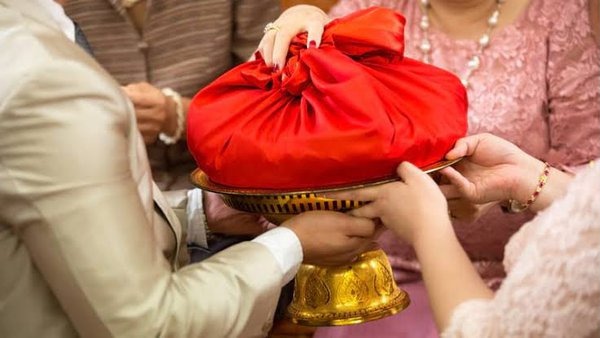Drawing significant attention amidst the national elections, terms like 'bridal gifts' have become focal points of discourse. The Supreme Court, in a key verdict, proclaimed that bridal gifts are the absolute property of the woman, granting her the full right to use them according to her will. This form of property cannot be claimed by the husband, although in times of crisis and with the wife's consent, it may be utilized.
Justices Sanjeev Khanna and Deepankar Datta, during the hearing of a matrimonial dispute case, clarified that a woman has complete authority over her bridal gifts, which encompass all items received before, during, or after marriage. These include gifts from parents, in-laws, relatives, and friends, as well as cash, jewelry, land, and household items.
Understanding Bridal Gifts
It's essential to understand what bridal gifts are and what they include. Contrary to popular belief that only gifts received during marriage fall under this category, the term also includes everything a woman has been given from childhood – from small keepsakes to gold, cash, savings, and even property received as presents. Unmarried women also have legal rights over their bridal gifts, covering all items retained since childhood.
The Legal Framework Surrounding Bridal Gifts
The Hindu Succession Act of 1956 under Section 14 and the Hindu Marriage Act of 1955 under Section 27 secure a Hindu woman's rights over her bridal gifts. These laws empower her to retain such property from before, during, and after marriage. She is legally entitled to dispose of it, gift it, or even sell it at her discretion.
Moreover, the Protection of Women from Domestic Violence Act, 2005, provides women the right to claim their bridal gifts in cases of domestic abuse. In circumstances where the in-laws withhold bridal gifts, often claiming safekeeping, the law deems them trustees. The woman has the right to demand and retrieve such belongings at any time.
Bridal Gifts vs. Dowry: How Do They Differ?
Bridal gifts and dowry are distinct concepts. Dowry is typically demanded or given as part of marriage negotiations, whereas bridal gifts are voluntarily presented out of love and affection. If in-laws forcefully retain bridal gifts, a woman is entitled to claim them back. Separate legal action can be pursued alongside dowry harassment cases.
Can Women Sell Their Bridal Gifts?
A woman can legally donate or sell her bridal gifts, property she owns. She may willingly provide such assets to her husband in times of need, but they are to be returned later. However, this is contingent upon her having an account of her property. It's worth noting that such a concept of bridal gifts does not exist in Islam.
Why Are Bridal Gifts in the Spotlight?
During an electoral rally in Rajasthan, Prime Minister Modi referenced former Prime Minister Manmohan Singh's statement that Muslims have the first right to the nation's resources, critiquing the implications of distributing wealth based on family size and to infiltrators. He warned against policies that might infringe upon the possessions of women, notably their bridal gifts.




